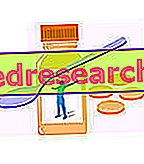Definition
In the medical field, the term "dengue" identifies a febrile illness with an acute course, typical of tropical and sub-tropical areas of the globe. Dengue is one of the most widespread and dangerous human arboviruses, a group of diseases supported by an RNA virus.
Classic form of dengue: regresses in 3-10 days, even without taking drugs
Hemorrhagic form of dengue: a serious variant of the disease, which can be lethal
Causes
The Dengue virus gives its name to the disease: it is an RNA arbovirus, single-stranded, which is transmitted to humans through the bite of a mosquito ( Aedes aegypti ) previously infected. In other words, the transmission of the virus occurs from man to man through the bite of mosquitoes infected by the microorganism; only rarely, the inter-human infection can occur through direct contact with the blood of an infected person, during the viremic phase.
Symptoms
In some subjects, dengue does not generate any symptoms; in most cases, on the other hand, the disease occurs 4-10 days after the infection, reporting anorexia, convulsions, retroauricular pain, pharyngitis, very high fever (41 ° C), headache, bone and joint pain, itching, gastrointestinal symptoms, cough. Less frequently, dengue (hemorrhagic variant) causes severe rash, nausea, bleeding and vomiting.
Information on Dengue - Dengue Treatment Medications is not intended to replace the direct relationship between health professional and patient. Always consult your doctor and / or specialist before taking Dengue - Dengue Treatment Medications.
drugs
Fortunately, dengue is not generally a worrying disease, and tends to regress spontaneously in 3-10 days, except for the potentially lethal hemorrhagic variant (due to cardiovascular collapse).
The classic form of dengue, accompanied mainly by extreme weakness and general malaise, can be treated with supportive therapies, since there are no specific drugs.
The pharmacological treatment involves the administration of active ingredients aimed at eliminating symptoms, such as fever, pain and malaise; to remember that salicylates, increasing the risk of bleeding, are not recommended for treating dengue in adults and prohibited in children under 12 years.
Due to the hemorrhagic form of the disease, the patient is generally hospitalized and placed under observation: the risk incurred by the patient takes the form of dehydration, shock and cardiovascular collapse. In this case, blood or plasma transfusions may be necessary, and intravenous infusions of electrolyte solutions.
Fever monitoring is fundamental, even in the classic form of dengue: when too high, it can degenerate into convulsions.
- Paracetamol or acetaminophen (eg Tachipirina, Acetamol, Piros, Flogarfev, Codamol): the paracetamol posology must be established by the doctor on the basis of the patient's age. For adults, the indicative dose is 500 mg per dose; it is also possible to take the drug intravenously: 1 gram every 6 hours or 650 mg every 4 hours for adults and adolescents weighing more than 50 kilos; if the patient weighs less than 50 kilos, give 15mg / kg every 6 hours or 12.5 mg / kg every 4 hours. For children under one year of age affected by dengue, we recommend taking 60 mg per dose; up to 6 years, it is possible to increase the dosage up to 120 mg, while for children aged between 6 and 12 years, it is recommended to take 240 mg per dose. Do not give more than 6 doses of medication a day.
- Codeine (eg. Codein, Hederix Plan): the drug is an opioid derivative with analgesic activity, used to treat the symptoms that accompany dengue. Indicatively, to reduce acute pain in the context of dengue, take 30 mg of active, orally, intramuscularly, subcutaneously or intravenously, every 6 hours, as needed. It is also possible to administer the same dose every 4 hours. Consult your doctor.
- Sodium carbazocromo sulfonato (ex. Adona): this drug is indicated to treat the hemorrhagic form of dengue, in which there is an exaggerated increase in vascular permeability associated with more or less marked vascular fragility; when the disease reaches this stage, the chances of the patient suffering from shock are very high. It seems that the administration of this drug can reduce the risk of shock; however, there are still no reliable data available on the efficacy of this active ingredient for the treatment of hemorrhagic dengue. The drug is available in 25 mg tablets, to be taken by mouth, or in powder for 50 mg oral solution. The dosage must always be established by the physician on the basis of the severity of the pathology and the physio-pathological picture of the patient.
- Chloroquine (eg Chloroquine, Cloroc FOS FN): the efficacy of chloroquine (an antimalarial drug with an immunomodulatory action) is doubtful for the treatment of dengue. It is recommended to take this drug only after the diagnostic assessment. Consult your doctor.
We cannot talk about a vaccination to prevent dengue, since an effective vaccine has not yet been devised. However, the adoption of measures aimed at eliminating or reducing mosquito infestation (dengue vector) is essential:
- Remediation of areas with high population density
- Compliance with health and hygiene standards
- Removal of urban waste
- Disposal of sewage water
- Disinfection
- Apply mosquito repellents to the skin (based on dimethylphthalate every 2-3 hours)
- Spray insecticides (formulated with pyrethrum) in the rooms
Compliance with these simple rules of hygiene and behavior reduces the risk of contracting dengue: prevention is the best drug.



